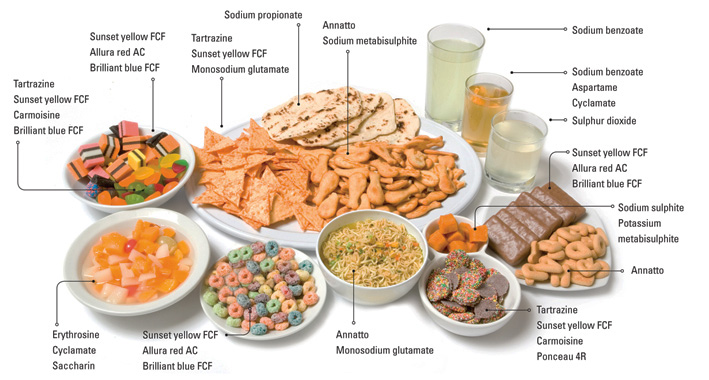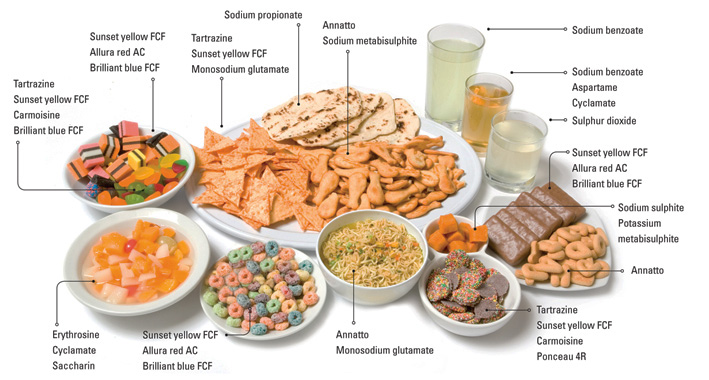If the mandate of the FDA includes protecting public health by assuring the safety of the food supply, why is the organization allowing a staggering amount of additives to adulterate our food? Many of these additives have dire consequences to the health this agency is supposed to protect. Since the advent of commercially processed foods in the 1950’s, many non-food …
We are eating WHAT?
What if you took a spoonful of your morning cereal and had an allergic reaction or even felt tranquillized? But when you looked at the package labeling there were no ingredients that would seem to be red flags? Increasingly, thanks to an FDA loophole, food makers use additives and chemicals that they and not the FDA have declared “safe” and the ingredients …
Additives in Processed Foods May Alter Gut Bacteria
Study in mice suggests changes might raise risk of bowel diseases and metabolic syndrome WEDNESDAY, Feb. 25, 2015 (HealthDay News) — A common ingredient in many processed foods might increase the risk of inflammatory bowel disease (IBD) and metabolic syndrome, a new study in mice suggests. Emulsifiers are used to improve food texture and to extend shelf life. In experiments …
6 Common Food Additives Used in the U.S. That Are Banned in Other Countries
The U.S. Food and Drug Administration (FDA) regulates the use of food additives like preservatives, colors, sweeteners, fat replacers, emulsifiers and other ingredients added to food to maintain or improve safety, freshness, nutritional value, taste, texture and appearance. Food additives can be direct (those added for a specific purpose) or indirect (those added in trace amounts due to packaging, storage or handling) and are determined …
Could Common Food Additives Be Causing Serious Health Problems?
Emulsifiers approved for use by the U.S. Food and Drug Administration are commonly added to processed foods to improve texture, increase shelf life and prevent oils and fats from separating. You’ll see them listed on ingredient labels as polysorbate 80, lecithin, carrageenan, polyglycerols, xanthan and other gums in everything from bread and cookies to salad dressings, ice cream, non-dairy milks and more. …





